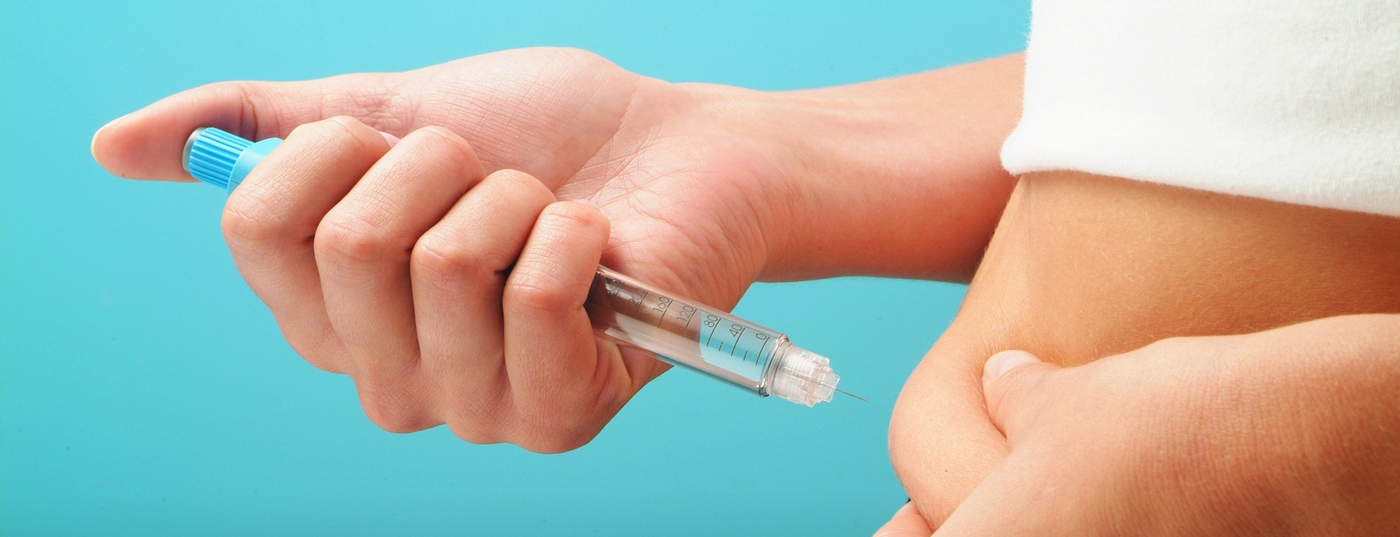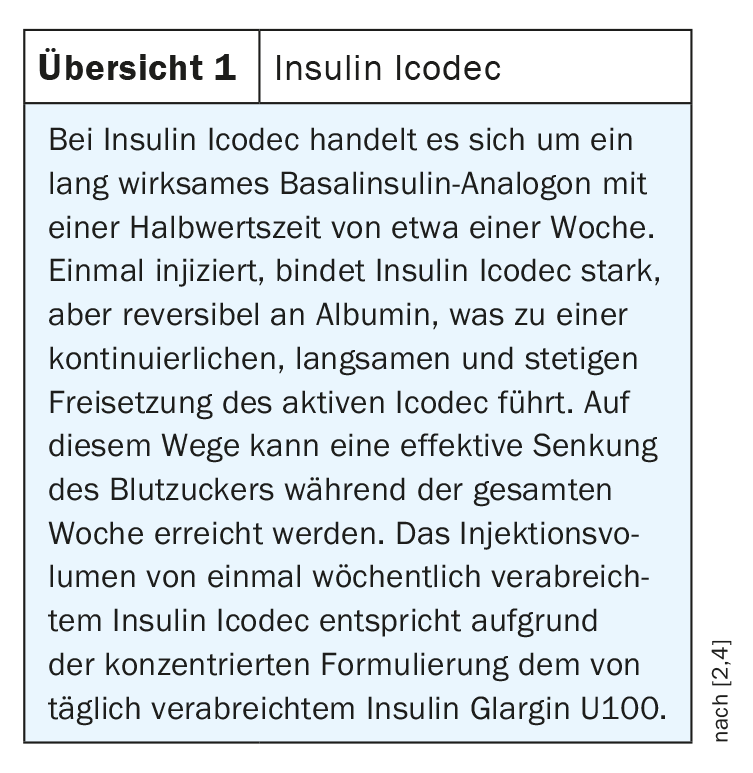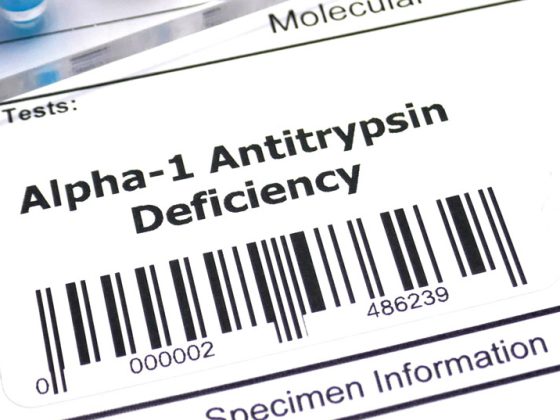An ultra-long-acting insulin analogue that only needs to be injected once a week is currently in development. The results of the clinical studies to date are promising. Insulin Icodec has shown comparable lowering of blood glucose levels to currently available daily insulin injections. These and other innovations on the research horizon were the topic of this year’s Diabetology without Borders congress.
In general, the basic therapy for type 2 diabetes includes dietary changes and regular exercise, supplemented by the administration of oral medications such as metformin and, if appropriate, SGLT-2 inhibitors and/or GLP-1 receptor agonists. If these therapies do not work, an attempt is usually made to compensate for the lack of insulin production by the pancreas by administering additional insulin. Insulin therapy has a long and eventful history, explains Prof. Dr. med. Petra-Maria Schumm-Draeger, Medical Director and Specialist for Internal Medicine, Endocrinology and Diabetology at the Center for Internal Medicine Fünf Höfe, Munich (D) [1].
Study success for insulin Icodec
After 100 years of insulin therapy with continuous improvement of available treatment options, another milestone is on the horizon: Studies on the once-weekly insulin Icodec have delivered promising results, and it remains to be seen what will happen next. Insulin therapy, which requires an injection only once a week, could contribute to an improved acceptance of the therapy. Insulin Icodec, administered once weekly, has a glucose-lowering effect comparable to that of once-daily insulin glargine in patients with type 2 diabetes mellitus. This is the result of a study published in the New England Journal of Medicine 2020 [2]. The results of extensive Phase III studies must first be awaited before a possible approval can be granted. The Phase II study compared once-weekly insulin Icodec with once-daily insulin glargine U100 (Lantus®) in 247 patients with type 2 diabetes who had not previously received insulin and whose diabetes was not adequately controlled with oral medications. Over a 6-month period, no significant difference was found in the quality of diabetes control. Side effects such as hypoglycemia were also comparable in both groups.
Future visions for insulin therapy
In addition to insulin Icodec, other weekly basal insulins are currently under development by various manufacturers.Apart from clinical research programs on weekly insulin, studies have been launched under the EU-funded project “Oralis” to develop a drug (“Oramed”) in which insulin is delivered via the liver instead of being injected directly into the bloodstream. A phase II study showed a statistically significant reduction in HbA1c levels with good safety and tolerability. The drug candidate ORMD-0801 has been tested in over 700 individuals to date. The research team hopes that Phase III trials can be initiated soon under the aegis of the FDA and EMA [3].
The “Smart Insulin” concept, which is also currently being researched, involves the following vision: an insulin depot in the body that releases insulin bound to a carrier in adequate quantities until the target glucose value is reached when blood glucose levels are high. To date, however, some success with insulin carrier preparations has only been achieved in animal models. Fundamental difficulties include questions about the location of the depot (bloodstream, subcutaneous tissue, tissue) and whether or how the glucose concentration at the “depot location” should control insulin release. To date, it is also unclear whether the insulin effects are tissue-dependent and, if so, exactly what these differences are.
Congress: Diabetology without borders 2021
Literature:
- Schumm-Draeger P-M: Type 2 diabetes: what’s important and new – update 2021. Prof. Dr. med. Petra-Maria Schumm-Draeger, press conference, Diabetologie grenzenlos, 26.02.2021.
- Rosenstock J, et al: N Engl J Med 2020; DOI: 10.1056/NEJMoa2022474.
- Cordis (EU): https://cordis.europa.eu/article/id/421968-the-first-oral-insulin-for-the-treatment-of-type-2-diabetes/de (last accessed 24.03.21).
- Arznei-news.de: https://arznei-news.de/insulin-degludec (last accessed 24.03.21)
HAUSARZT PRAXIS 2021; 16(4): 24 (published 4/4/21, ahead of print).
CARDIOVASC 2021; 20(2): 28 (published 6/28/21, ahead of print).












